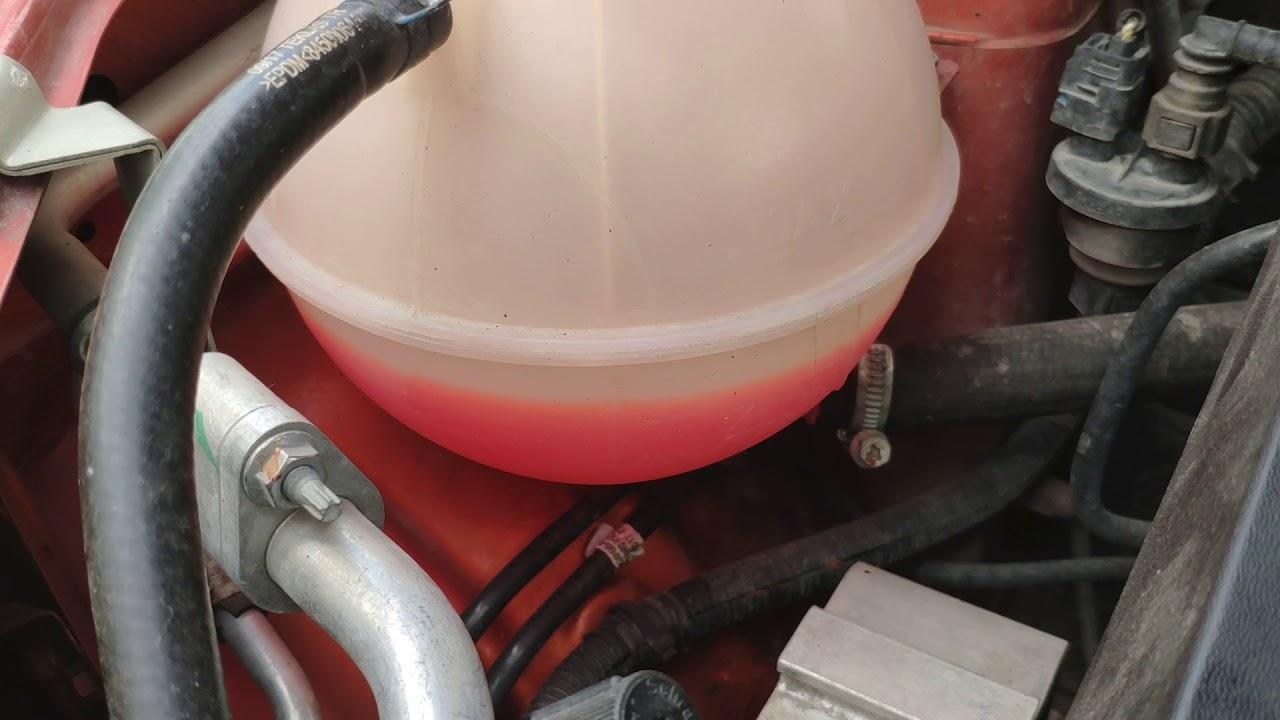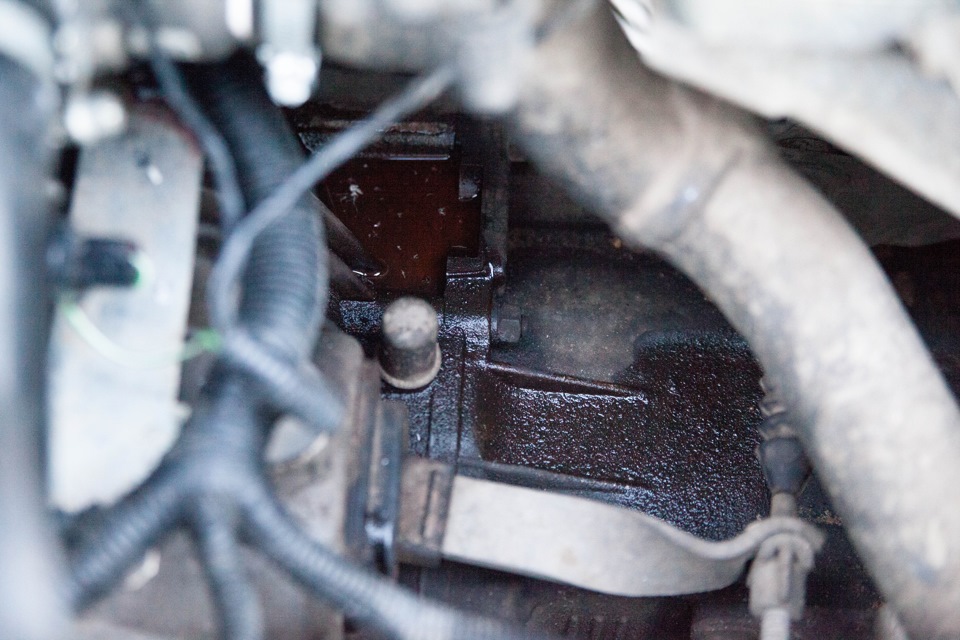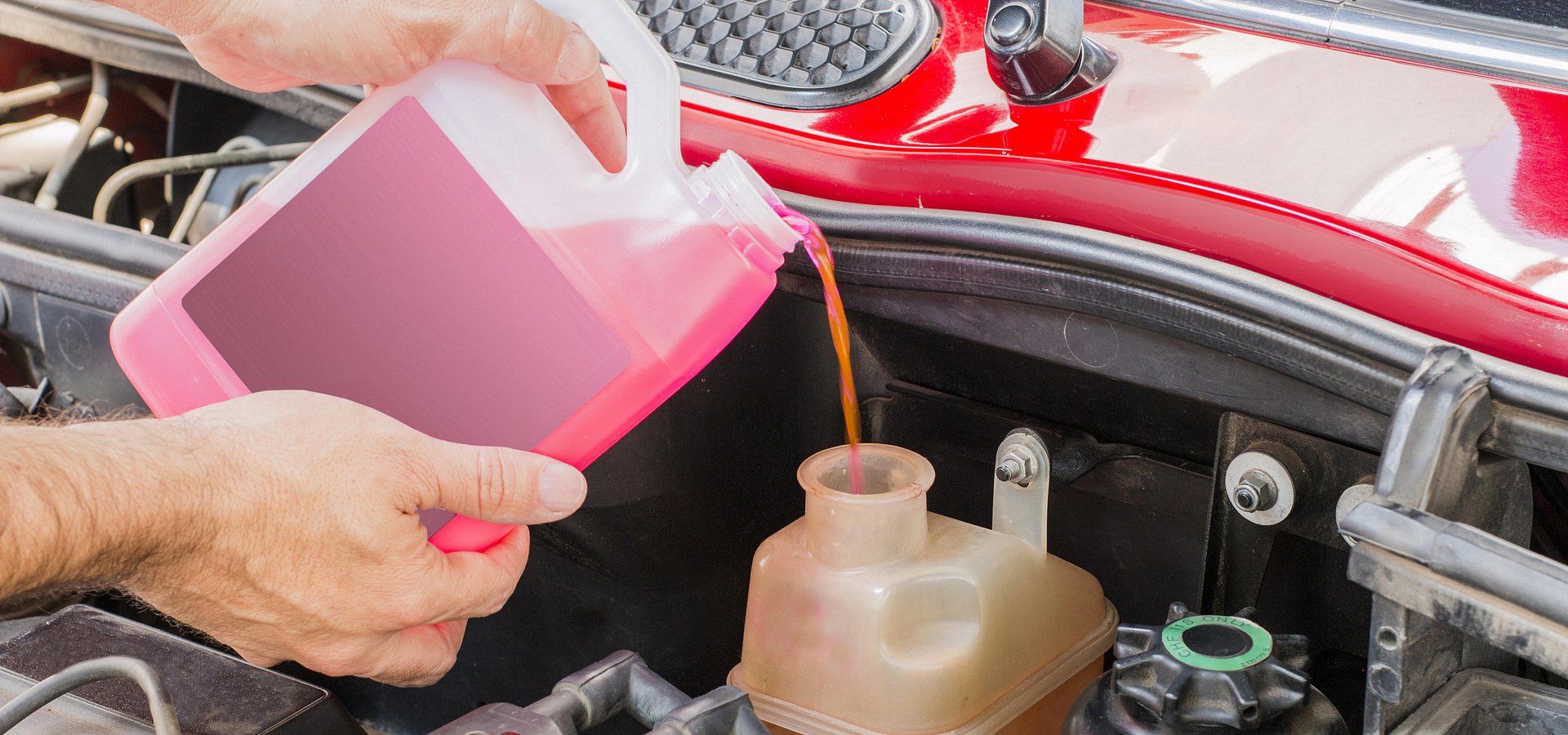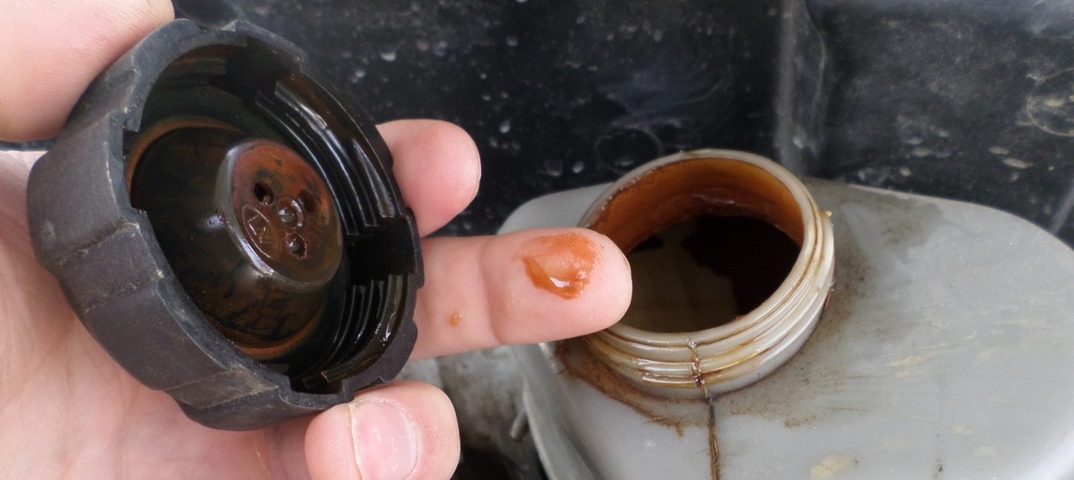
When you turn on the stove in the car, it stinks of antifreeze: causes and solutions
Content
White smoke from the exhaust pipe when the engine is turned on, accompanied by the presence of a specific sweet smell, indicates a mixture of antifreeze with engine oil, but the most difficult to diagnose failure is leakage into the engine.
The cloying smell of antifreeze that occurs when the stove is turned on indicates a fluid leak from the car's cooling system. Such a malfunction can lead to premature engine failure, so the vehicle owner needs to take corrective action as soon as possible. The article contains a detailed description of the causes, characteristic features and ways to correct the situation when the car smells of antifreeze from the stove.
Causes of appearance
The main reasons for the occurrence of a coolant leak include the following:
- insufficiently strong fixation of the clamps on the radiator pipes or its damage;
- gaps at the base of the pipes for supplying and discharging antifreeze;
- violation of the integrity of other elements of the cooling system.

Smell of antifreeze
Radiator pipes are included among the fundamental components of the car cooling complex, so careless operation and increased load on the elements lead to premature failure of individual components.
The most important prerequisites for the occurrence of such malfunctions include:
- replacing antifreeze with water to save money;
- long-term use of the refrigerant that has worked out the resource;
- incorrect functioning of the valve for steam removal, which leads to an increase in the pressure level in the cooling complex of the vehicle;
- the use of antifreeze of mediocre quality in the stove or with characteristics that are not suitable for the brand of the car;
- cavitation destruction - the destruction of the metal when working under constant load in the process of continuous contact with antifreeze;
- excessive heating and boiling of the coolant.
The priority task of a motorist in case of suspected leakage of antifreeze from the radiator is a phased check of the integrity of the components of the cooling system. In most cases, this operation is performed using an ultraviolet LED flashlight, which makes it possible to detect microscopic breakdowns.
Signs of a leak
The main factor indicating problems with the circulation of antifreeze is a specific sweet smell inside the car, which does not disappear even after thorough ventilation. Additional signs are damp foot mats and regular overheating of the engine.

Signs of a leak
Vehicle sensors do not always alert the driver to the presence of problems in the cooling system, so a detailed visual inspection of the elements will be the best method for diagnosing such problems.
Possible consequences
Late troubleshooting is one of the most common causes of malfunction and engine failure. This is not the only trouble that overtakes a motorist at the most inconvenient moment - the consequences are much more serious in comparison with replacing the vehicle's engine.
Technical
Leakage of antifreeze from the cooling system is accompanied by an increase in engine temperature, which leads to accelerated wear of individual elements and becomes the main cause of failure. An additional unpleasant consequence is an increased risk of electrical wiring in the vehicle interior due to oxidation of the contacts of the dashboard sensors.
Operational
An increase in the volume of condensate is the main cause of mold and fungus on surfaces, which leads to the formation of an unpleasant odor and causes the driver and passengers to become infected with diseases that are difficult to treat. The presence of an excessive amount of perspiration on the windows is an additional negative factor, the elimination of which will help minimize the likelihood of an accident in conditions of insufficient visibility through the windows.
Physiological
Most modern car coolants are based on ethylene glycol, a highly toxic chemical. A single lethal dose for humans when taken orally varies from 0.1 to 0.25 ml. The constant inhalation of ethylene glycol-laden air in the passenger compartment of a car leads to various health problems, including difficulty breathing, irritation of the eyes and mucous membranes of the mouth, headache, and a general deterioration in well-being.
Why can't you slow down
If the inside of the car began to stink of antifreeze from the stove, the owner of the vehicle must immediately take action - this can be done independently or contact a car service specialist. The most serious consequence of leaking antifreeze in a car is engine malfunction due to excessive load.

inside the car began to stink of antifreeze from the stove
Violation of the location of the cylinder head due to deformation of the pistons and crankshaft causes the need for replacement. For example, a major overhaul of the engine of the domestic Lada Granta model will cost the owner several tens of thousands of rubles, and the purchase of a new Priora injection engine will cost 180 thousand rubles. Early diagnosis and timely troubleshooting of the cooling system in this case will help the motorist avoid unexpected financial expenses.
Self diagnosis
The main characteristic sign of the appearance of antifreeze leaks is increased consumption compared to the standard operating conditions of the machine. Comprehensive visual diagnostics of the elements of the cooling system is the main method for elimination.
Repair yourself or contact a car service
Restoring the normal circulation of antifreeze is one of the most important tasks for maintaining the viability of a car engine. In most situations, you can start eliminating the smelly smell from the stove on your own on the street or in the garage, but in the most advanced cases, it is strongly recommended to order diagnostics at a car service.
Solutions
To get rid of leaks in the cooling system and a smelly smell in the car interior, you can do it yourself in the following ways:
- check the lid or tank for damage, take corrective action;
- put a sheet of cardboard under the car, determine the places where antifreeze appears, check the integrity of the pipes one by one.
White smoke from the exhaust pipe when the engine is turned on, accompanied by the presence of a specific sweet smell, indicates a mixture of antifreeze with engine oil, but the most difficult to diagnose failure is leakage into the engine.
In these situations, the owners of "Grants", "Priora" and any other car are recommended not to postpone a visit to the car repair shop, which will allow them to perform a comprehensive diagnosis of the cooling system using special measuring instruments and avoid the cost of purchasing a new engine.

